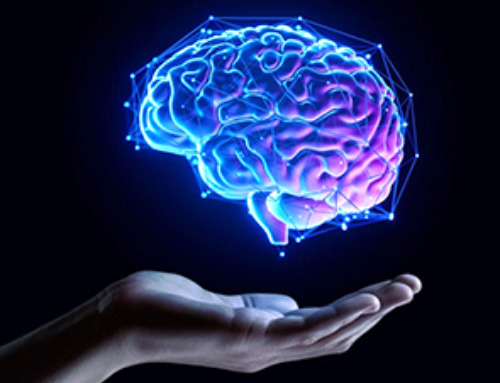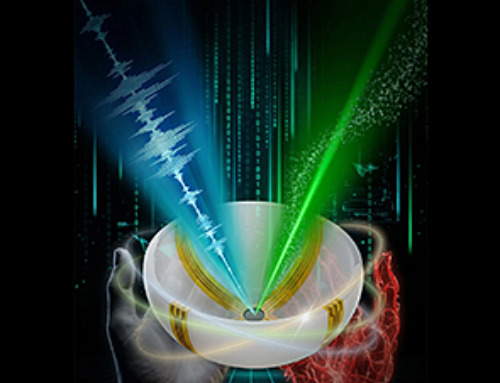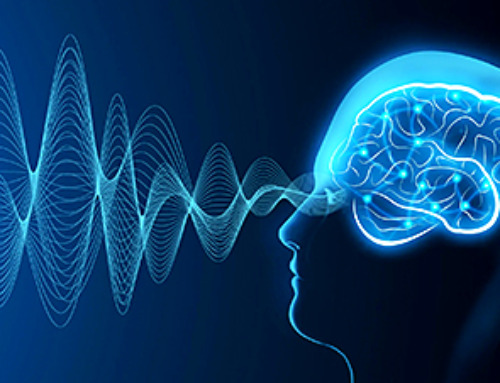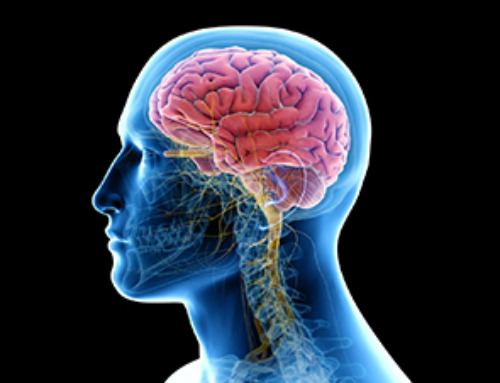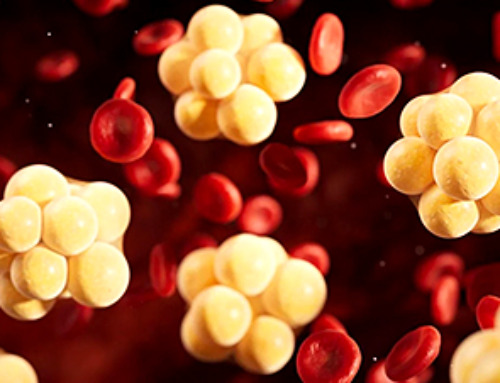Summary: A large study suggests that symptomatic infection with herpes simplex virus 1 (HSV-1)—best known for causing cold sores—may significantly raise the risk of developing Alzheimer’s disease. Researchers found that people with HSV-1 were 80% more likely to have Alzheimer’s, while those treated with antiviral medications had a 17% lower risk.
The findings align with other evidence that HSV-1 may trigger inflammation and amyloid-beta accumulation in the brain, hallmarks of Alzheimer’s pathology. Although the study is observational and can’t prove causation, it highlights the potential for antiviral therapy as a protective strategy and urges greater public health focus on herpes virus prevention.
Key Facts:
- 80% Higher Risk: People with HSV-1 were significantly more likely to develop Alzheimer’s.
- Antiviral Benefit: HSV-1 patients who took antiviral drugs had a 17% lower Alzheimer’s risk.
- Biological Link: HSV-1 may drive brain inflammation and amyloid buildup, contributing to dementia.
Source: BMJ
Symptomatic infection with the virus responsible for cold sores around the mouth–herpes simplex 1, or HSV-1 for short—may have a key role in the development of Alzheimer’s disease, suggests a large pharma industry-funded US study published in the open access journal BMJ Open.
But treatment with antiviral therapy seems to be linked to a lower risk of this type of dementia, suggesting that treatment to quell HSV-1 symptoms may be protective, the findings indicate.
Currently, around 35.6 million people worldwide live with dementia, and 7.7million new cases are diagnosed every year, say the researchers. Alzheimer’s disease comprises 60%–80% of all dementias, with total costs for its treatment reaching US$305 billion in 2020, they add.
Various infectious agents have been implicated in the development of Alzheimer’s disease, and the most studied of these is HSV-1, which affected more than two-thirds of under 50s around the globe in 2016 alone.
To shed further light on the mooted role of HSV-1 in Alzheimer’s disease and the potential protective effects of antiherpetic drugs, the researchers drew on a large set of US administrative claims data (IQVIA PharMetrics Plus) for the period 2006-21.
People diagnosed with Alzheimer’s disease were matched for age, sex, geographical region, database entry year, and number of healthcare visits with those without any history of neurological disease, resulting in a total of 344,628 case–control pairs.
Nearly two thirds (65%) of those with Alzheimer’s disease were women. Their average age was 73 and they tended to have more co-existing conditions—all risk factors.
In all, 1507 (just under 0.5%) people with Alzheimer’s disease had been diagnosed with HSV-1 (0.44%) compared with 823 (just under 0.25%) of those in the comparison (control) group.
Unsurprisingly, the risk of Alzheimer’s disease rose in tandem with age. But, overall, the likelihood of an HSV-1 diagnosis was 80% higher among those with Alzheimer’s disease, after adjusting for potentially influential factors.
Among the 2330 people with a history of HSV-1 infection, 931 (40%) used antiherpetic medication after their diagnosis. And they were 17% less likely to develop Alzheimer’s disease than those who didn’t use these treatments.
The researchers also looked at the potential role of other herpes viruses, including HSV-2, varicella zoster virus, and cytomegalovirus. Both HSV-2 and varicella zoster virus infections were also associated with a heightened risk of Alzheimer’s disease.
Exactly how HSV-1 and other neurotropic viruses might heighten the risk of dementia isn’t clear, point out the researchers.
“However, studies have shown that inflammatory alterations in the brain caused by HSV infection are pivotal in [Alzheimer’s disease] development,” they explain. “It has been reported that Aβ peptides are deposited in response to HSV infection and protect host cells by blocking viral fusion with the plasma membrane, pointing to HSV as a potential risk factor for [Alzheimer’s disease]. Consistently, Aβ exhibits antimicrobial properties against various pathogens, including HSV-1,” they add.
HSV-1 DNA is also found in the plaques characteristic of Alzheimer’s disease, and people carrying the ApoE ε4 allele, the most common genetic risk factor for the disease, are more susceptible to HSV infections, they note.
This is an observational study, and as such, no firm conclusions can be drawn about cause and effect. And the researchers acknowledge that HSV-1 infections before the patient’s inclusion in the database weren’t known, added to which many people with the infection don’t have symptoms, while others might not seek treatment when they do–all factors that might influence the findings.
But their findings are in line with those of other studies. And they suggest: “While the molecular mechanisms remain to be fully elucidated, these results are indicative of a possible role for antiherpetic therapy in mitigating dementia risk.”
And they conclude: “These findings place an even greater emphasis on viewing the prevention of herpes viruses as a public health priority.
News
Smaller Than a Grain of Salt: Engineers Create the World’s Tiniest Wireless Brain Implant
A salt-grain-sized neural implant can record and transmit brain activity wirelessly for extended periods. Researchers at Cornell University, working with collaborators, have created an extremely small neural implant that can sit on a grain of [...]
Scientists Develop a New Way To See Inside the Human Body Using 3D Color Imaging
A newly developed imaging method blends ultrasound and photoacoustics to capture both tissue structure and blood-vessel function in 3D. By blending two powerful imaging methods, researchers from Caltech and USC have developed a new way to [...]
Brain waves could help paralyzed patients move again
People with spinal cord injuries often lose the ability to move their arms or legs. In many cases, the nerves in the limbs remain healthy, and the brain continues to function normally. The loss of [...]
Scientists Discover a New “Cleanup Hub” Inside the Human Brain
A newly identified lymphatic drainage pathway along the middle meningeal artery reveals how the human brain clears waste. How does the brain clear away waste? This task is handled by the brain’s lymphatic drainage [...]
New Drug Slashes Dangerous Blood Fats by Nearly 40% in First Human Trial
Scientists have found a way to fine-tune a central fat-control pathway in the liver, reducing harmful blood triglycerides while preserving beneficial cholesterol functions. When we eat, the body turns surplus calories into molecules called [...]
A Simple Brain Scan May Help Restore Movement After Paralysis
A brain cap and smart algorithms may one day help paralyzed patients turn thought into movement—no surgery required. People with spinal cord injuries often experience partial or complete loss of movement in their arms [...]
Plant Discovery Could Transform How Medicines Are Made
Scientists have uncovered an unexpected way plants make powerful chemicals, revealing hidden biological connections that could transform how medicines are discovered and produced. Plants produce protective chemicals called alkaloids as part of their natural [...]
Scientists Develop IV Therapy That Repairs the Brain After Stroke
New nanomaterial passes the blood-brain barrier to reduce damaging inflammation after the most common form of stroke. When someone experiences a stroke, doctors must quickly restore blood flow to the brain to prevent death. [...]
Analyzing Darwin’s specimens without opening 200-year-old jars
Scientists have successfully analyzed Charles Darwin's original specimens from his HMS Beagle voyage (1831 to 1836) to the Galapagos Islands. Remarkably, the specimens have been analyzed without opening their 200-year-old preservation jars. Examining 46 [...]
Scientists discover natural ‘brake’ that could stop harmful inflammation
Researchers at University College London (UCL) have uncovered a key mechanism that helps the body switch off inflammation—a breakthrough that could lead to new treatments for chronic diseases affecting millions worldwide. Inflammation is the [...]
A Forgotten Molecule Could Revive Failing Antifungal Drugs and Save Millions of Lives
Scientists have uncovered a way to make existing antifungal drugs work again against deadly, drug-resistant fungi. Fungal infections claim millions of lives worldwide each year, and current medical treatments are failing to keep pace. [...]
Scientists Trap Thyme’s Healing Power in Tiny Capsules
A new micro-encapsulation breakthrough could turn thyme’s powerful health benefits into safer, smarter nanodoses. Thyme extract is often praised for its wide range of health benefits, giving it a reputation as a natural medicinal [...]
Scientists Develop Spray-On Powder That Instantly Seals Life-Threatening Wounds
KAIST scientists have created a fast-acting, stable powder hemostat that stops bleeding in one second and could significantly improve survival in combat and emergency medicine. Severe blood loss remains the primary cause of death from [...]
Oceans Are Struggling To Absorb Carbon As Microplastics Flood Their Waters
New research points to an unexpected way plastic pollution may be influencing Earth’s climate system. A recent study suggests that microscopic plastic pollution is reducing the ocean’s capacity to take in carbon dioxide, a [...]
Molecular Manufacturing: The Future of Nanomedicine – New book from Frank Boehm
This book explores the revolutionary potential of atomically precise manufacturing technologies to transform global healthcare, as well as practically every other sector across society. This forward-thinking volume examines how envisaged Factory@Home systems might enable the cost-effective [...]
New Book! NanoMedical Brain/Cloud Interface – Explorations and Implications
New book from Frank Boehm, NanoappsMedical Inc Founder: This book explores the future hypothetical possibility that the cerebral cortex of the human brain might be seamlessly, safely, and securely connected with the Cloud via [...]

















